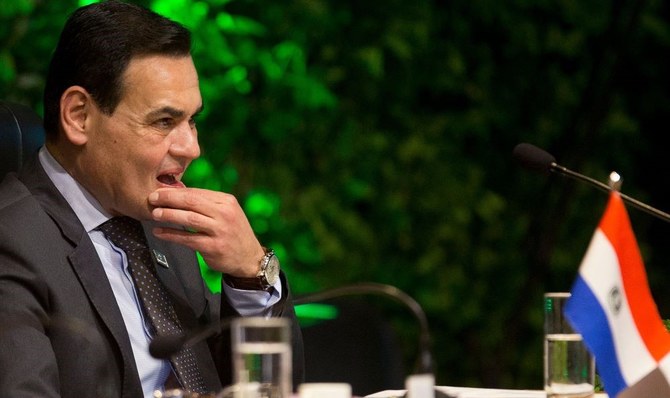
The holy grail of political risk analysis is to cut through the disorienting noise of modern life to reach what is vital. In our new era, that is seeing that the Indo-Pacific is pivotal to the future of the world. It is where most of the planet’s future economic growth will come from, as well as most of its political risk. Narrowing the focus further, in this most important of regions, paradoxically the small island state of Taiwan is where the rubber hits the road, as its future trajectory will go a very long way toward determining the outcome of the overarching superpower contest between the US and a rising China. Be it the issues of geopolitics, macroeconomics or democracy, all roads lead back to Taiwan.
First, in geostrategic terms, there can be little doubt that Taiwan remains one of the two keys to geographically hemming in mainland China. Think of communist China as a bottle with two narrow necks at either end: To the south is the Strait of Malacca (controlling access to the Indo-Pacific) and to the north is Taiwan, anchoring the first island chain off mainland Asia. To punch its way free to the wider world, Beijing must control one or the other of the bottlenecks, or live in constant dread that antagonistic powers will have the ability to shut it down in both geoeconomic and geopolitical terms.
Presently, China controls neither bottleneck, nor is its rapidly improving navy (yet) a match for US maritime supremacy. This strategic reality explains much of the impetus for Beijing’s Belt and Road Initiative (BRI), an overland effort to break out of its old, vexing, maritime prison. However, plagued by cost overruns, endemic corruption and voracious lending practices, the BRI alternative has lost a lot of its steam.
The reality is that Taiwan still sits as an unsinkable pro-American aircraft carrier, bottling in Beijing from the north. However, if Xi Jinping’s regime were ever to gain control of Taipei, America’s first island chain defense would be destroyed and Beijing strategically unbound. For the US, Taiwan is nothing less than the key to strategically containing communist China.
Second, if Taiwan is central to America’s geopolitical calculations in the Indo-Pacific, it is also assuming an increasingly pivotal role in the global economy. The Taiwanese firm TSMC is the world’s largest single producer of semiconductors, accounting for a staggering 84 percent of the most advanced computer chips.
Recent chip shortages — caused by the pandemic crisis — are just waking the world up to the central role Taiwan plays in today’s global economy. For chips are not just used in computers; instead, they are the brains undergirding a whole range of common products, such as automobiles. This precious, precarious single industrial input is nothing less than a linchpin of the world economy — and it is dominated by Taiwan.
Alarmed by this, both Washington and Beijing have begun a crash course to lessen this dependence on a single source for chips, but changing supply chains takes time. Presently, any disruption of any kind in Taiwan’s semiconductor production would drastically affect the world economy as a whole. Beijing lives in fear that, if the cold war in the Indo-Pacific were to heat up, much as it is true geostrategically, so geoeconomically the US-Taiwanese alliance could definitively stifle it.
The island sits as an unsinkable pro-American aircraft carrier, bottling in China from the north.
Dr. John C. Hulsman
Lastly, there is the important power of symbolism. Part of the Chinese communist argument is cultural — that the dominant thread of ethnic Han Chinese nationalism is simply incompatible with Western notions of democracy. This makes the nearby reality of Taiwan especially galling for the Communist Party leadership.
Sitting just next door, Taiwan (which is demographically 95 percent Han) has evolved from its post-1949 authoritarian ways under Chiang Kai-shek into a fractious, if healthy, democracy. So, in complete opposition to Communist Party theory, Taiwan possesses both a first-world economy and is also an established democracy.
For these fundamental geopolitical, macroeconomic and geostrategic reasons, President Xi has made it clear that he cannot abide the continued existence of a pro-American, free and democratic Taiwan. Xi has forcefully stated that, although Beijing desires reunification between Taiwan and the mainland to occur peacefully, its reabsorption will take place in any event, sooner rather than later, and not at some indefinite far-away point in the future.
Taiwan is without doubt the new strategic center of the world. It is up to America to recognize this central new political risk reality.
Dr. John C. Hulsman is the president and managing partner of John C. Hulsman Enterprises, a prominent global political risk consulting firm. He is also senior columnist for City AM, the newspaper of the City of London. He can be contacted via chartwellspeakers.com.
Disclaimer: Views expressed by writers in this section are their own and do not necessarily reflect Arab News" point-of-view












